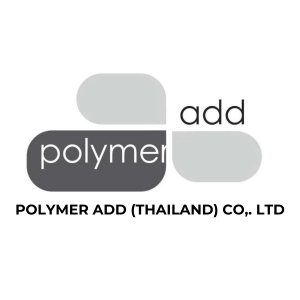Sodium Antimonate (Uses)
Sodium antimonate, also known as sodium meta antimonate, is a compound with the chemical formula NaSbO₃. It has various applications across different fields Fire Retardants Sodium antimonate is commonly used as a fire retardant in plastics, textiles, and other materials. It works by releasing water vapor and carbon dioxide when exposed to heat, diluting the […]
Sodium Antimonate Uses In Rubber
Sodium antimonate can be employed in the rubber industry for its fire-retardant properties and other functionalities. Here’s how it can be used: Fire Retardancy Like in other applications, sodium antimonate acts as a fire retardant in rubber products by releasing water vapor and carbon dioxide when exposed to heat. This helps to suppress the spread […]
Sodium Antimonate Uses In Glass Manufacturing
Sodium antimonate finds several applications in the glass industry, primarily due to its ability to modify the optical and physical properties of glass. Here are some common uses: Refining Agent Sodium antimonate is used as a refining agent in the glass manufacturing process. It helps to remove bubbles and other impurities from molten glass, resulting […]
Sodium Antimonate Use In Adhesives And Sealants
Sodium antimonate can indeed be utilized in adhesives and sealants to impart fire-retardant properties to these products. Here’s how it may be used in such applications: Fire Retardancy Sodium antimonate acts as a fire retardant by releasing water vapor and carbon dioxide when exposed to heat. These gases dilute the flammable gases produced during combustion, […]
Sodium Antimonate Use As Fire Retardant
Sodium antimonate is indeed utilized as a fire retardant in various materials due to its ability to suppress the spread of flames and reduce the combustibility of substances. Here’s how it works and where it’s commonly applied: Mechanism of Action Sodium antimonate works as a fire retardant by releasing water vapor and carbon dioxide when […]
Sodium Antimonate Use In Production Of Multilayer Ceramic Capacitors (MLCSS)
Sodium antimonate (NaSbO₃) is used in the production of multilayer ceramic capacitors (MLCCs), primarily as a ceramic dielectric material. MLCCs are essential components in electronic circuits, used for storing and regulating electrical energy. Here’s how sodium antimonate is utilized in the production of MLCCs: Dielectric Material Sodium antimonate is a ceramic material with excellent dielectric […]
Comparison Between Chloro Dibenzylidene Sorbitol And Dimethyl Dibenzylidene Sorbitol
Chloro dibenzylidene sorbitol (CDBS) and dimethyl dibenzylidene sorbitol (DMDBS) are both nucleating agents used in the production of polypropylene (PP), particularly in injection molding applications. While they share similarities in their function as nucleating agents, there are differences between the two compounds in terms of their properties and applications. Here’s a comparison: Chemical Structure Chloro […]
Comparing Antimonates And Titanates As Dielectric Materials
Dielectric Constant (Permittivity) Antimonates Sodium antimonate typically exhibits a moderate to high dielectric constant, making it suitable for applications requiring high capacitance values in MLCCs. Titanates Titanate-based dielectric materials, such as barium titanate and strontium titanate, generally offer higher dielectric constants compared to antimonates. This allows titanate based MLCCs to achieve higher capacitance values in […]
Common Dielectric Materials Used In Multilayer Ceramic Capacitors
The most common dielectric materials used in multilayer ceramic capacitors (MLCCs) include: Barium Titanate (BaTiO₃) Barium titanate is one of the most widely used dielectric materials in MLCCs. It offers high permittivity (dielectric constant) and excellent stability over a wide range of operating temperatures and frequencies. Barium titanate-based MLCCs are suitable for a broad range […]
Bentonite Uses In Adhesives
Bentonite is utilized in adhesives for several reasons, owing to its unique properties. Here are some of the main ways in which bentonite is used in adhesive formulations: Thickening Agent Bentonite functions as a thickening agent in adhesive formulations. When dispersed in water or solvent-based adhesive systems, bentonite forms a gel-like structure, increasing viscosity and […]
